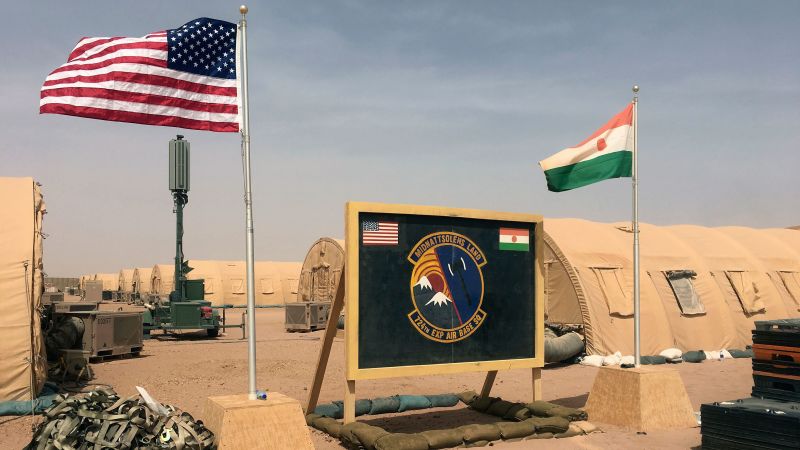The United States is currently negotiating an agreement with the military junta in Niger to leave behind a small contingent of troops, while the majority of US forces are being withdrawn from the country. The withdrawal process will be carried out over a period of months in phases, with a focus on logistics and reducing the US military presence to a level that the Nigerians are comfortable with. This decision comes after the Niger government requested the departure or reduction of US forces, following a wave of military coups across Africa that have threatened American influence on the continent.
Despite ongoing discussions about leaving a small number of troops in Niger, the government has made it clear that it wants US forces to leave. One of the key issues being addressed in negotiations is an agreement to allow US military flights in and out of the country, as the airspace has been closed to foreign militaries since the coup in July. Additionally, equipment and personnel not deemed necessary for life or safety are being prepped to be removed from the country as part of the phased withdrawal plan.
The situation in Niger is seen as a reflection of growing instability in Africa, where Russia has been expanding its influence through security assistance and information operations. The fear is that Russia’s willingness to offer immediate aid with fewer conditions could lead to US exclusion from certain regions in Africa, potentially impacting American access to key strategic locations like the Mediterranean. US officials are concerned about losing partnerships with African nations to Russia and China, who have been more aggressive in their outreach to military leaders in the region.
The head of US Africa Command, Gen. Michael Langley, has warned Congress about the threat of African nations being captured by Russian influence, as several countries in Africa are at a tipping point of aligning with Russia. The concern is that the US may soon find itself on the outside looking in, as African nations opt for the perceived benefits of Russian assistance over American aid. However, there is hope that the ineffectiveness of Russia’s offers will eventually become apparent to coup regimes that have decided to align with Moscow.
The US withdrawal from Niger and potential threats to American influence on the continent highlight the broader competition between Russia and the United States for global power and influence. The US military presence in Africa, focused mainly on counterterrorism efforts, is facing challenges as African nations navigate shifting alliances and seek assistance from other major powers. The outcome of these dynamics could have significant security implications not just for Africa but for global stability and US access to critical regions in the world.


